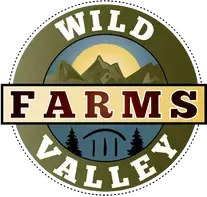|
Using Wool Pellets to Reduce the Need for Additives in Your Farm or Garden For many gardeners and farmers, finding sustainable and natural ways to enhance soil health is a constant journey. The health of our soil dictates the quality of our crops and, consequently, our food. Yet, in this era of quick solutions, many are tempted to use synthetic additives to boost soil fertility. However, what if there was a natural solution that could not only improve soil health but also reduce the need for these additives? Enter wool pellets from Wild Valley Farms. Wool pellets, as showcased on Wild Valley Farms' website, offer an innovative approach to organic soil enhancement. Here’s how these remarkable products can revolutionize your farm or garden: 1. Slow Release of Nutrients:Wool pellets are a fantastic source of slow-releasing nitrogen. Unlike many synthetic fertilizers that release nutrients quickly (and sometimes at the expense of plant health), wool pellets ensure a sustained release. This slow dissemination ensures that plants get the nutrients they need over an extended period, reducing the need for frequent fertilizing. 2. Improved Water Retention:Anyone who has dealt with gardening knows the challenge of maintaining the right moisture levels. Too much water can drown the plants, while too little can cause them to wilt. Wool has an innate ability to absorb up to 20 times its weight in water. This means that incorporating wool pellets into your soil greatly enhances its water retention capability. In areas or seasons where water might be scarce, this property can be a lifesaver for your plants. 3. Soil Aeration:Healthy soil is not just about nutrients and moisture; it's also about breath-ability. Roots need oxygen to thrive. The unique structure of wool pellets allows for better aeration of the soil, ensuring that roots can breathe easier. This naturally leads to healthier and more robust plants. 4. Reducing Soil Compaction:Over time, especially in areas with heavy foot or equipment traffic, soil can become compacted. Compacted soil restricts root growth and makes it difficult for plants to access the nutrients and water they need. The fibrous nature of wool pellets aids in reducing soil compaction, creating a more conducive environment for plants to flourish. 5. Enhancing Microbial Life:A thriving garden or farm is about more than just about the plants you can see. Below the surface, a myriad of microbial life plays a pivotal role in nutrient cycling and overall soil health. Wool pellets are organic and biodegradable, making them an excellent food source for beneficial microbes in the soil. As these microbes break down the wool, they release nutrients and contribute to the overall health and balance of the soil ecosystem. 6. Environmentally Friendly:By choosing wool pellets, you're not just benefiting your garden or farm. You're also making an environmentally conscious choice. Wool is a renewable resource, and its use in agriculture reduces waste from the wool industry. Additionally, by reducing the need for synthetic additives, you're reducing the chemical load on our environment.
The journey to sustainable and healthy agriculture is one filled with challenges but also immense rewards. By incorporating wool pellets into your gardening or farming practices, as advocated by Wild Valley Farms, you are taking a step toward not only healthier plants but also a more balanced and sustainable ecosystem. It's time to embrace this natural solution and reduce our reliance on synthetic additives.
0 Comments
Leave a Reply. |
Archives
May 2024
Categories
All
|



 RSS Feed
RSS Feed

